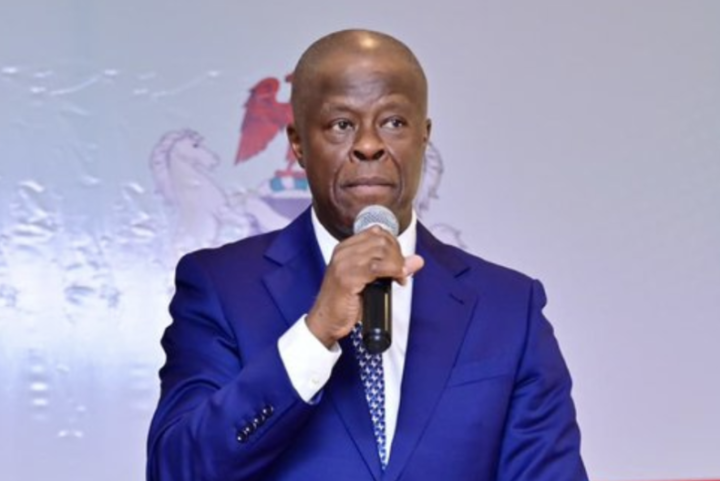
The federal government has issued a $500 million FX-denominated domestic bond, marking an important step in the country's economic reform and growth efforts.
Mr. Wale Edun, the Minister of Finance and Coordinating Minister of the Economy, presented the Series I USD500 million Domestic FGN US Dollar Bond in Lagos yesterday.
Edun noted that the launch was a bold step toward economic reform, attracting both domestic and international investors.
The bond offering, which is anticipated to open up a new market area for governments and enterprises, will begin on Monday.
Edun, who announced the bond, claimed, "This historic initiative aims to raise a minimum of $500 million from both local and international investors, marking a significant step in Nigeria's ongoing economic reform and development efforts."”
He stated that the bond sale was intended to strengthen the Nigerian financial sector, which includes the Securities and Exchange Commission (SEC), the banking system, and investment bankers.
The minister stated that the bond constituted a significant effort to attract foreign currency owned by Nigerians overseas, as well as other international investors who support President Bola Tinubu's macroeconomic reform objectives.
He noted that the financial market thrives on creativity and innovation, and that it was critical to urge investors to participate in the strategic opportunity.
Edun stated that the new bond proposal was another critical step toward strengthening Nigeria's economy.
He emphasized the need of dollar funding, particularly in stabilizing the exchange rate, which he stated was critical to the country's economic stability.
Speaking about the difficulties African countries confront in the global capital markets, the minister clarified that rating agencies frequently favored the region. He gave his word that Nigeria wanted to lead.
With the historic bond launch, the minister expressed optimism that Nigeria was poised to become a continental financial hub, where other African countries could raise capital and drive economic growth.
According to the auction circular of the $500 million bond, the federal government hoped to double its offer amount as it targeted $1 billion in subscriptions through the bond auction.
The bond, the first of its kind in the country’s financial system, is a five-year bond with a bi-annual interest payment in currency of issuance, and principal payment at the expiration of the tenor.
The bond will be listed on the Nigerian Exchange (NGX) and FMDQ Securities Exchange, providing liquidity and accessibility to a broad range of investors.
There are indications that the government could raise as much as $2 billion, the total size of the approved scalable bond issuance programme.
Many analysts believe the bond comes with a plethora of advantages, particularly underscoring the point that the success of its issuance will be a confidence boost for the country and the current administration.
While it will allow the government to channel the remittances into more profitable ventures for investors, they argue that in terms of impacting the financial market, the effect will be the same as the issuance of Eurobonds.
The domestic dollar bond will enable domiciliary account holders to earn good income on their generally non-interest yielding deposits in Nigerian banks, as well as reduce capital flight since interest payments will be retained in the local economy.
Some other benefits include providing a platform for those seemingly idle funds to be invested and get good returns while still enjoying the hedging advantage of holding a reserve currency.
They also suggest that the instrument provides the federal government the much-needed dollar liquidity for the forex market with the expectation that it will lead to the strengthening of the naira.
Experts are equally looking at its potential of a positive knock-on effect on inflation and consequently interest rates.
While highlighting the positive outcomes already being witnessed from the current economic policies, Edun stated that government revenue and expenditure had been significantly revamped, while the trade balance was improving. He alluded to government’s efforts in revitalising the agricultural sector, which he said was taking a new and promising direction.
Edun pointed to the present administration’s successful interventions to reduce inflation and poverty, such as the removal of levies on food imports and the direct transfer of funds to the most vulnerable citizens.
A statement issued by Director, Information and Public Relations, Federal Ministry of Finance, Mohammed Manga said, “The minister’s visionary leadership and commitment to innovation have set the stage for a brighter economic future, especially now that Nigeria has taken the lead in harnessing diaspora savings and driving macroeconomic reforms, the country is well on its way to becoming a continental financial hub, driving growth and prosperity for generations to come.”